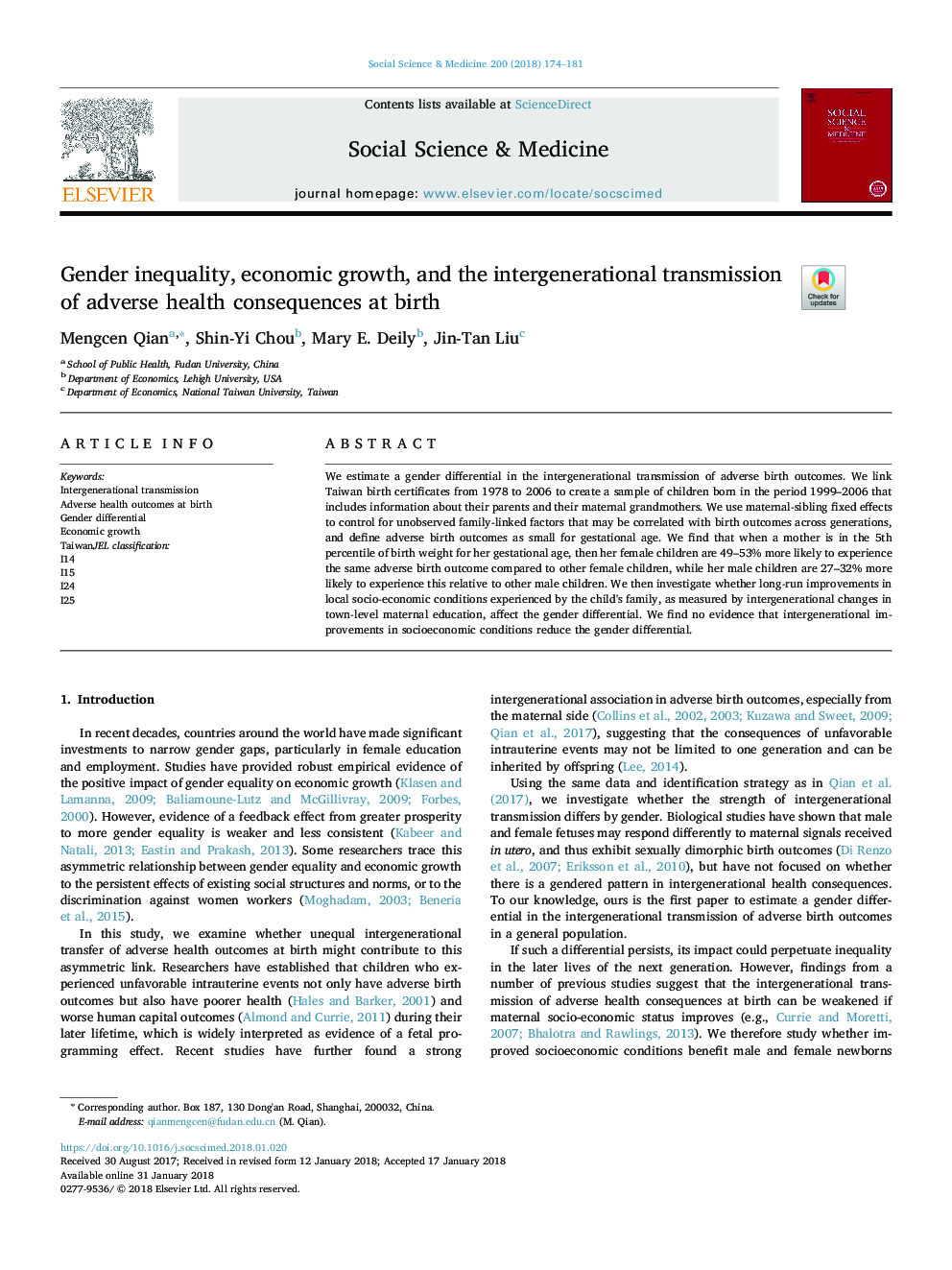| Article ID | Journal | Published Year | Pages | File Type |
|---|---|---|---|---|
| 7328457 | Social Science & Medicine | 2018 | 8 Pages |
Abstract
We estimate a gender differential in the intergenerational transmission of adverse birth outcomes. We link Taiwan birth certificates from 1978 to 2006 to create a sample of children born in the period 1999-2006 that includes information about their parents and their maternal grandmothers. We use maternal-sibling fixed effects to control for unobserved family-linked factors that may be correlated with birth outcomes across generations, and define adverse birth outcomes as small for gestational age. We find that when a mother is in the 5th percentile of birth weight for her gestational age, then her female children are 49-53% more likely to experience the same adverse birth outcome compared to other female children, while her male children are 27-32% more likely to experience this relative to other male children. We then investigate whether long-run improvements in local socio-economic conditions experienced by the child's family, as measured by intergenerational changes in town-level maternal education, affect the gender differential. We find no evidence that intergenerational improvements in socioeconomic conditions reduce the gender differential.
Related Topics
Health Sciences
Medicine and Dentistry
Public Health and Health Policy
Authors
Mengcen Qian, Shin-Yi Chou, Mary E. Deily, Jin-Tan Liu,
